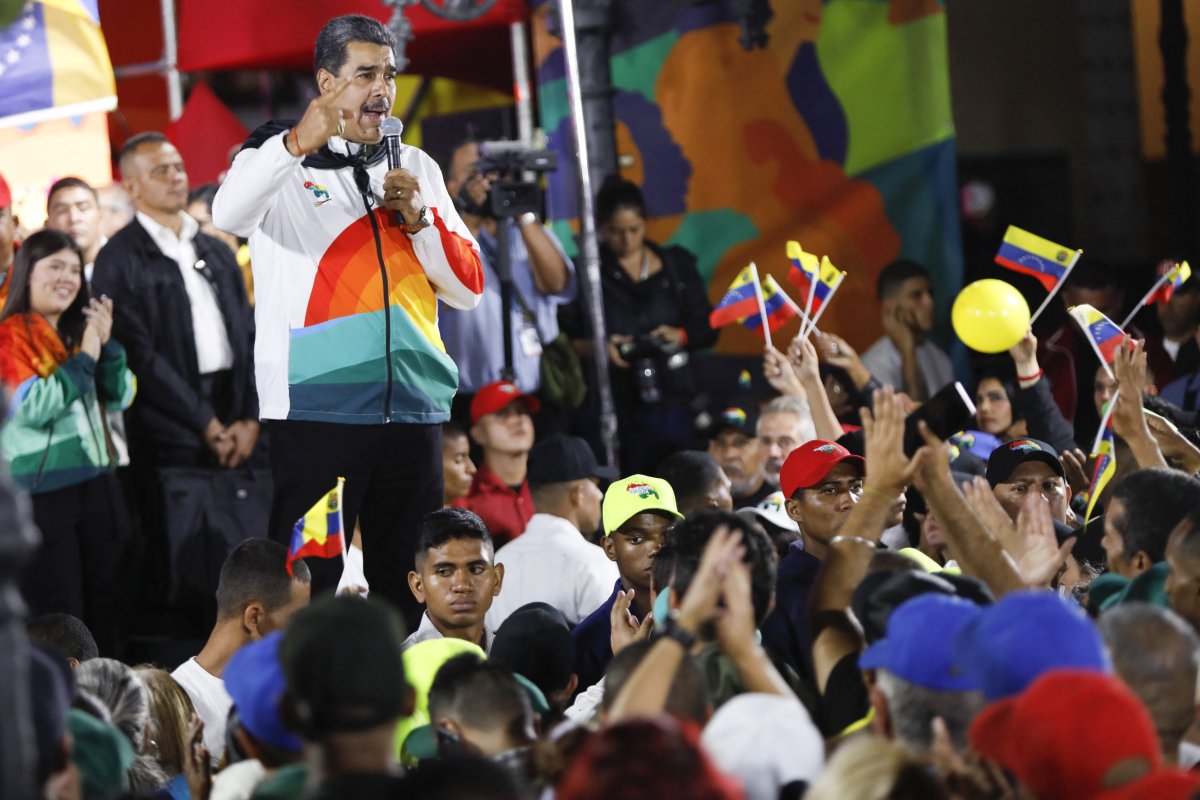Venezuelans voted in favor of claiming sovereignty over a vast swathe of neighboring country Guyana on Sunday, according to the nation's election officials, raising fresh fears that President Nicolás Maduro could seek to annex the territory by force.
The National Election Council claimed to have counted more than 10.5 million votes in a referendum, the Associated Press reported. The council, however, did not explain whether the number of votes was equivalent to each voter or if it was the sum of each individual answer in the five-question referendum.
Venezuela argues that Guyana's Essequibo region, also known as Guayana Esequiba, was stolen from it when the border was drawn over a century ago.
The region—which accounts for two thirds of the area of Guyana—is rich in both oil and minerals, and would in theory give Venezuela access to the Stabroek Block, an oil field that it is estimated contains more than eight billion barrels, discovered by ExxonMobil in 2015, which sits almost entirely in Guyana's territorial waters.
It follows international calls for Venezuela to desist from actions that could threaten Guyana's control of Essequibo and a build up of military forces by Brazil.

Venezuelan voters were asked whether they support "the creation of the Guayana Esequiba state" in the 61,600-square-mile disputed territory, and its incorporation into Venezuela.
The referendum also included questions about granting citizenship to residents and rejecting the jurisdiction of the International Court of Justice (ICJ) in settling the dispute.
"We have taken the first steps of a new historical stage to fight for our Guayana Esequiba, for peace and to recover what the liberators left us," Maduro said following the announcing of the referendum's results.
"I came to vote because Essequibo is ours, and I hope that whatever they are going to do, they think about it thoroughly and remember to never put peace at risk," 37-year-old Juan Carlos Rodríguez, told AP in Caracas, the Venezuelan capital, after voting.
The referendum has been viewed internationally as a step towards annexation of Essequibo. Following Russia's invasion of Ukraine, it used a referendum—widely suspected to have been rigged—on sovereignty over four regions it partially holds in an attempt to legitimize the land-grab.
On Friday, the ICJ ordered Venezuela not to take any actions that would infringe on Guyana's territories, though stopped short of banning the referendum. Guyana had earlier asked the court to stop the elements of the vote pertaining to Essequibo.
Explaining the verdict, ICJ President Joan E. Donoghue said messaging from the Venezuelan government suggested it "is taking steps with a view toward acquiring control over and administering the territory in dispute."

"Furthermore, Venezuelan military officials announced that Venezuela is taking concrete measures to build an airstrip to serve as a 'logistical support point for the integral development of the Essequibo,'" she added.
Last week, the Brazilian Defense Ministry said "defensive actions have been intensified" along its shared border with Guyana and Venezuela, with a "greater military presence" in the region.
Venezuela's claim to the Essequibo region dates from Spanish colonial times. In 1899, an internationally-brokered agreement put the territory under the control of British Guiana, which later gained independence as Guyana.
Maduro's government claims that a 1966 treaty between the U.K. and Venezuela to resolve the dispute diplomatically—which ultimately failed to produce a solution—effectively nullifies the 1899 boundaries. However, it is only since the discovery of oil off the coast of Guyana that Venezuela, which has faced serious economic problems of late, has taken renewed interest in its claim.
Uncommon Knowledge
Newsweek is committed to challenging conventional wisdom and finding connections in the search for common ground.
Newsweek is committed to challenging conventional wisdom and finding connections in the search for common ground.
About the writer
Aleks Phillips is a Newsweek U.S. News Reporter based in London. His focus is on U.S. politics and the environment. ... Read more





